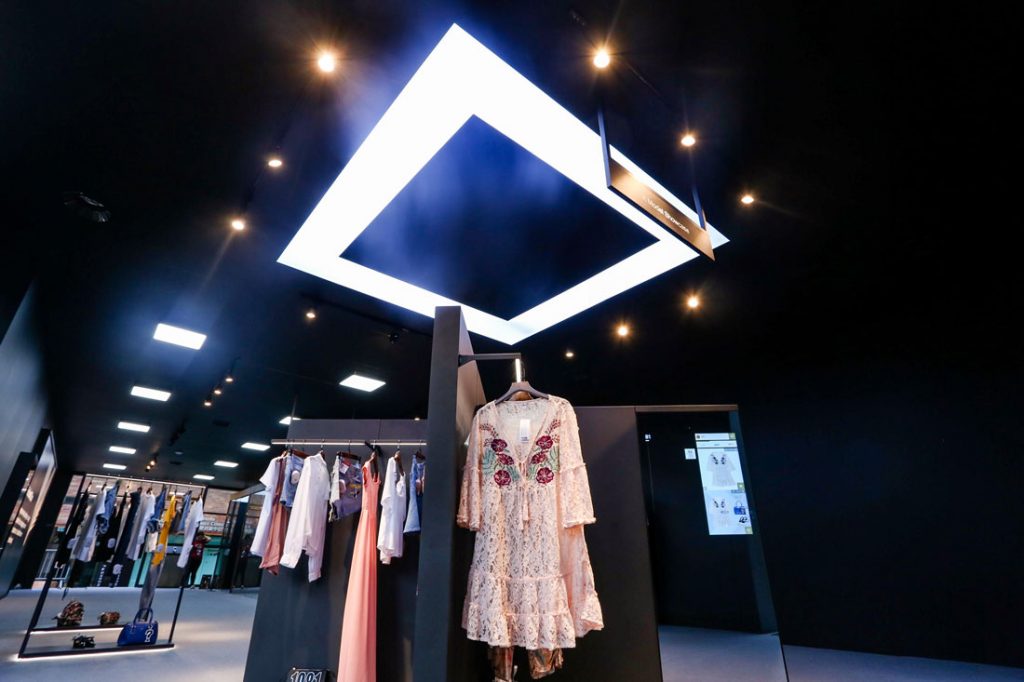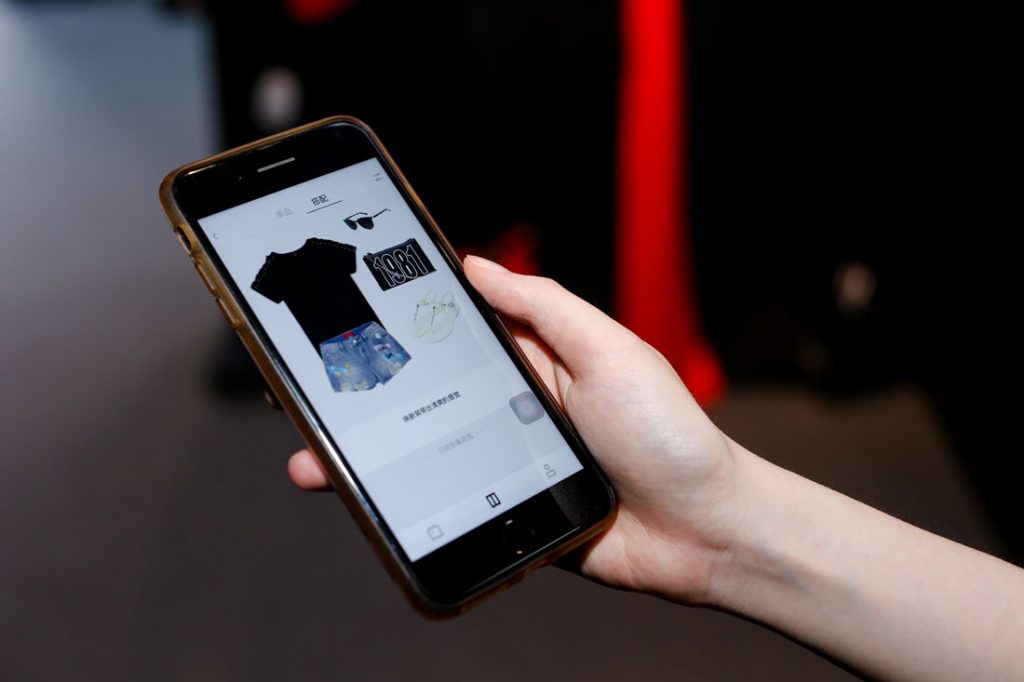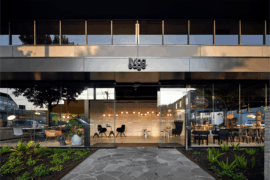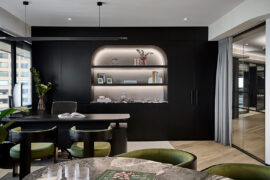Alibaba’s FashionAI system was showcased at a concept store in Hong Kong, with AI making personalised mix-and-match recommendations in response to items chosen in the physical store.

July 12th, 2018
Last week in Hong Kong, the offline fashion retail world took a step closer to an AI-driven future. From 5 to 7 July, Alibaba, GUESS and The Hong Kong Polytechnic University collaboratively presented a concept store where an AI system recommended outfits in a new model for the digitisation of fashion retail.
With the FashionAI system, Alibaba has developed a machine-driven mode of personalised mix-and-match recommendations. FashionAI learns the latest fashion trends and tips from analysis of the data generated by Alibaba’s ecosystem. It analyses images of more than 500,000 outfits assembled by stylists on Alibaba’s online shopping site Taobao, fashion insights from partner brands on Taobao spin-off site Tmall, as well as consumer insights.
At the heart of the FashionAI system is a smart mirror. In the concept store, when a customer held a fashion item in front of it, the FashionAI system would identify elements such as its colour, style and attributes (like neckline and sleeve length), and suggest compatible items to pair with it.

Each physical fashion item in the concept store was equipped with a smart lock incorporating gyrosensors, a Bluetooth Low Energy (BLE) chip and an RFID chip. As such, when a customer touched or picked up an item, it would automatically be displayed on the RFIS-enabled mirror.
The smart mirror also had a Taobao Wardrobe section. In the concept store, this recommended pieces from the GUESS line inside the store that would go well with any of the customer’s previously purchased items on Taobao or Tmall. Purchases from the offline store would be automatically reflected in the customer’s online accounts, so the mixing-and-matching could continue.

“With the latest AI technologies, like machine learning and computing vision, FashionAI can now recommend items that match your personal style,” explained Zhuoran Zhuang, Vice President of the Alibaba Group. He continued, “That gives imagination to consumers and injects new ideas into fashion brands and retailers to rethink their business and sales models. Leveraging AI in fashion, therefore, offers many untapped opportunities for fashion retailers.”
Said José Blanco, CEO of Greater China for GUESS, “At GUESS, we believe in the need to innovate in real time. We plan to extend this project in the region as the future of retail.”
INDESIGN is on instagram
Follow @indesignlive
A searchable and comprehensive guide for specifying leading products and their suppliers
Keep up to date with the latest and greatest from our industry BFF's!

Welcomed to the Australian design scene in 2024, Kokuyo is set to redefine collaboration, bringing its unique blend of colour and function to individuals and corporations, designed to be used Any Way!

A curated exhibition in Frederiksstaden captures the spirit of Australian design

For Aidan Mawhinney, the secret ingredient to Living Edge’s success “comes down to people, product and place.” As the brand celebrates a significant 25-year milestone, it’s that commitment to authentic, sustainable design – and the people behind it all – that continues to anchor its legacy.

Architectus Principals Simone Oliver and Patricia Bondin are set to speak at WORKTECH Sydney this year, so we asked them for some sneaky early insights on workplace design.

As Kvadrat announces its full independence, Njusja de Gier shares some insight on her fascinating and rather unorthodox career path.
The internet never sleeps! Here's the stuff you might have missed

Winner of the INDE.Awards 2025 Best of the Best, Terminal 2 Kempegowda International Airport Interiors by Enter Projects Asia and SOM showcases 12,000-square-metres of biophilic design, featuring nine kilometres of handwoven rattan in a sustainable, world-class passenger experience.

Now in their 19th year, the Architecture & Design Sustainability Awards are Australia’s leading program dedicated to recognising innovation and excellence in sustainable architecture and design.

Setting the tone for McCormack’s HQ is Elton Group’s Eveneer WoodWall and Eveneer Raw in Ravenna – wrapping walls, ceilings and bespoke joinery in a dark, matte elegance. The seamless pairing delivers a cohesive, high-performance finish that anchors Studio 103’s luxurious, hotel-inspired workplace design.

The INDE.Awards 2025 has crowned Sirius Redevelopment by BVN as the winner of The Multi-Residential Building, sponsored by CULT. This ambitious project redefines urban living in Sydney’s historic Rocks precinct while preserving heritage, reducing embodied carbon, and elevating residential design.